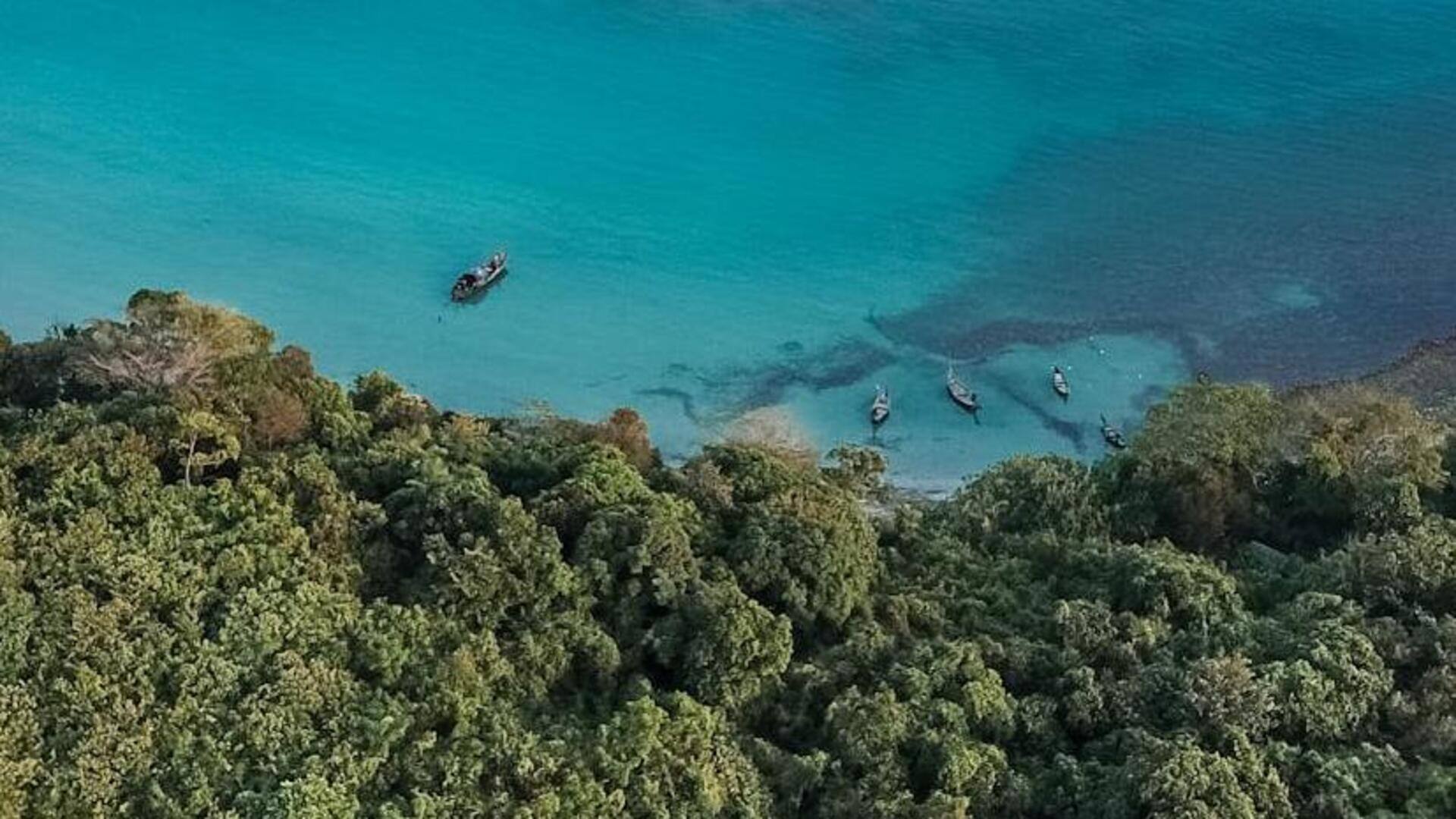
Swim with giants: Ningaloo Reef's whale shark adventure, Australia
What's the story
Ningaloo Reef in Western Australia offers a unique opportunity to swim alongside the gentle giants of the ocean, whale sharks. This UNESCO World Heritage site is one of the few places in the world where these magnificent creatures congregate in large numbers, making it a premier destination for snorkelers and marine enthusiasts.
Timing
Planning your visit
The best time to visit Ningaloo Reef for whale shark encounters is from March to July. During these months, whale sharks, attracted by the coral spawning, are most abundant. Tour operators provide snorkeling trips that allow you to swim with these gentle giants in their natural habitat. Booking your trip during this peak season significantly increases your chances of close encounters with whale sharks.
Selection
Choosing a tour operator
Selecting a reputable tour operator is crucial for a safe and memorable experience. Look for operators with strong environmental conservation policies and positive reviews from past participants. Many tours include not only the chance to swim with whale sharks but also opportunities to see other marine life such as manta rays, dolphins, and humpback whales during their migration season.
Essentials
What to bring
For your snorkeling adventure, you should bring a swimsuit, towel, reef-safe sunscreen, and a waterproof camera to capture the moments. It's important to note that most tour operators provide snorkeling gear and wetsuits, but checking beforehand is advisable. Staying hydrated is crucial; therefore, bring water and light snacks to maintain energy levels. This preparation ensures a memorable experience with whale sharks at Ningaloo Reef.
Guidelines
Respectful interaction
Interacting with whale sharks at Ningaloo Reef, it's vital to follow guidelines for safety. Keep a respectful distance; never touch or chase these majestic creatures. Always listen to your guide's instructions closely. Adhering to these rules ensures a respectful and minimal impact on the whale sharks' natural behaviors, offering a safe, memorable experience that aids marine conservation efforts.